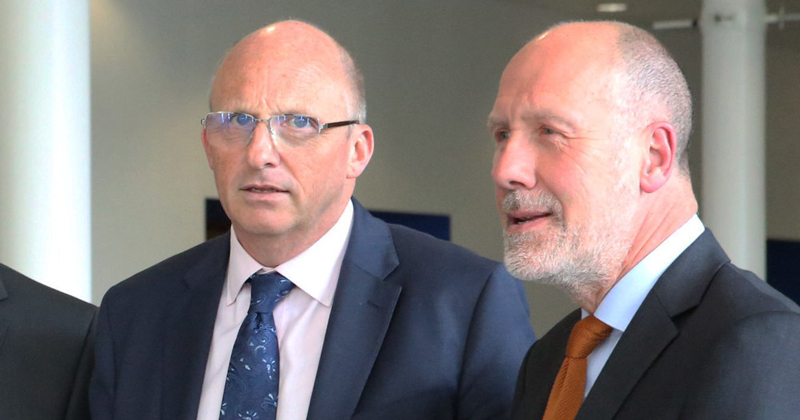The government believes schools should remain open for three quarters of pupils during strikes, leaked documents show, as the Department for Education prepares to legislate for minimum service levels.
But ministers stand accused of acting in “bad faith” and deliberately “collapsing” talks with unions aimed at reaching a voluntary agreement.
Education secretary Gillian Keegan announced last month that she was seeking a voluntary agreement with unions over minimum service levels for schools. Such a policy would require schools to remain open to some extent during industial action.

However The Sun reported last night that Keegan would pursue a legislative route, quoting a source saying she had “tried her best” to avoid the approach. The DfE has confirmed it wants minimum service levels in place by next September.
Unions learned of the plans to legislate via media reports last night. A source close to the talks told Schools Week that DfE officials had already apologised, and said the decision was leaked by Downing Strfeet.
A discussion document from the talks about a voluntary agreement for MSLs, seen by Schools Week, states that the government believes there is a “particularly strong case for ensuring face-to-face provision” for groups of children making up three quarters of the school population.
They include “vulnerable children and young people” including looked-after children and those with SEND, disadvantaged pupils, students due to take public examinations, the children of critical workers and primary aged pupils.
These groups “add up to roughly 74 per cent of school pupils and FE students”. Unions were told to “consider” the DfE’s proposals.
The DfE said its consultation would invite views on a “number of proposals”.
“These include priority attendance for vulnerable children and young people, exam groups, children of critical workers and primary school pupils, as well as the use of rotas for strikes lasting five days or more.”
DfE ‘collapsing’ talks in ‘bad faith’
Paul Whiteman, from the NAHT school leaders’ union, told Schools Week the announcement had come “completely out of left field” and while unions were “in the middle of talks”.
“We were waiting for our next meeting date. We had met them three times and there was nothing to suggest that they would just collapse it other than the spectre of Number 10 in the background.
“As far as we were concerned we’d had three meetings. We were in the middle of talks, difficult talks yes, but we were acting in good faith. It seems they have acted in bad faith.”
Geoff Barton, general secretary of the ASCL leaders’ union, posted on X that “education unions attended every meeting the secretary of state requested. None of us ‘refused’. We were expecting more discussions last week and this week. Instead we get this.”
The DfE said talks with unions had been “constructive”, but “not enough progress was made to ensure protections for children and young people would be in place for the next academic year”.
“The government has therefore taken the step to open the nine-week consultation to hear the views of parents, young people and the education sector on how best to ensure minimum service levels in schools, colleges as well higher education institutions.”
Unions fear ‘miserly pay award’
Barton added that minimum service levels “are a profoundly illiberal policy by a government that has lost the argument”.
“Nobody wants to go on strike. It is action that is taken as a last resort when all else has failed. But passing a law which effectively removes the right to strike from groups of employees is obviously done in order to weaken unions and the voice of employees over their pay and conditions.”
He said he feared the legislation would be used “to impose a miserly pay award next year which will further erode the real value of teacher pay and worsen a recruitment and retention crisis which is causing huge damage”.
Daniel Kebede, from the National Education Union, also warned the legislation would be “rushed through”.
He said the DfE planned a consultation of “just nine weeks – including the Christmas break”, which he said was “completely inadequate given the number of workplaces and employers covered by these proposals”.
“The attempt at dialogue was never meaningful. It was disingenuous and cynical. The end of talks was briefed out to the press by Number 10 before the talks ended. Sunak always intended to implement this draconian legislation without consent or mandate.
“The government cannot stand the fact that the NEU passed the highly restrictive thresholds for strike action not once but twice during the recent pay dispute. They now seek to make the legislation even more severe.”
















Your thoughts